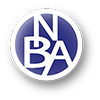dworthing
Forum Replies Created
-
AuthorPosts
-
dworthing
ParticipantPlease forgive the delay. I am asking for advice. In the meantime, could you send me a picture of these symbols in print context?
dworthing
ParticipantIs this taken from a math or science book that is done in Nemeth?
I agree that this should be main item with subdivisions and may be treated as if the two Give ... statements had identifiers like a) and b).dworthing
ParticipantIf this is treated as displayed, would there be a blank line before the displayed expressions since this is not a math expression?
dworthing
ParticipantThis is a very hard concept for me to grasp...but I'll try!
The dot locator for mention is used whenever symbols are listed (on the Special Symbols page, in a TN, in a list that is in print).
The dot locator for use is used whenever a symbol (such as a free standing colon) might get "lost". The dot locator is to help the reader know which positions within the cells have dots in them (that it's a colon and not hyphen). Sometimes, a grade 1 indicator is used to designate punctuation standing alone (see the free standing question mark on page 51 of the UEB codebook). Also, you cannot have an indicator on a line by itself without using the Dot locator for use. See the examples on page 30 of the UEB codebook).
One of the dot locators is used only with symbols lists...the other is for when a symbol is actually being used for some purpose - not just being explained.
I hope that helps. If not, let me know and I will ask for more information from other sources.
Cindi
dworthing
ParticipantThe updated Braille Formats book is not yet approved by BANA. The Formats Committee is recommending that foreign words in an English context be uncontracted (following BF 2011). The UEB codebook does allow for contractions to be used...and it does allow for the governing braille authority to choose to do things differently (as you noted below). The current document for Formatting is BF 2011. Until that is updated, I suggest you follow those formatting rules when transcribing UEB. Especially since UEB does not address formatting. This would not apply to a work that is considered a foreign language document...it only applies to foreign words within an English context.
Cindi
dworthing
ParticipantThe base language for a technical text is no longer EBAE. We will be following the provisional guidance as posted on BANA's website. The only place you will use Nemeth symbols will be inside the Nemeth code indicators. All numbers, punctuation, etc in the surrounding text will be UEB. Formatting in the full document will follow the process already established: If nemeth code addresses a format it is followed even in the non-Nemeth text. Note that transcriber's note symbols will be UEB. No contractions are used within the nemeth indicators so the nemeth rules about contractions will not be applicable. The table of contents will use upper cell numbers in the page numbering list.
The final answer: we follow UEB except when in Nemeth mode as identified in the Provisional Guidance document.
If you are planning to attend the NBA conference in April, you will see the math workshops demonstrating nemeth within UEB context.dworthing
ParticipantIf there is no space between the tilde and the following number it does not meet the criterion for requiring a numeric indicator. The number is not preceded by a space (or by a space and minus sign).
dworthing
ParticipantReferring to my previous question, since these are ratios, should I perhaps just braille them as such, using the "is to" sign?
dworthing
ParticipantThank you very much. That is how I had decided I would do it, and am glad to have you agree.
dworthing
ParticipantWould you then use the number indicator when the Tilde is used, as it is here, to mean "approximately"?
DR
dworthing
ParticipantThere is no listed nemeth symbol for that R. I hope that I am picturing the same thing you are asking about. I think generally a script R is used. The text would have defined what it represents.
dworthing
ParticipantHi. I'm sorry, but I really don't know the answer. Could you post your question on the Foreign Language forum? I'm sure they will be of more assistance than I can be, and I'll be checking back for the solution.
dworthing
ParticipantYes. I would say that you need a letter indicator on the a -- it is essentially a single letter standing alone as defined in section 25.
dworthing
ParticipantIt is not actually Nemeth Code that will not allow contractions -- it is UEB that prohibits contractions within the Nemeth switches. Everything within the switches is presumed to be mathematical, so no contractions. The only contractions allowed would be when the single-word switch is used within the mathematical part for one non-mathematical word. When the opening Nemeth switch indicator is inserted, everything that follows will be according to the Nemeth Code. Outside of the switches, everything is UEB. When transcribing a technical book (science, math, statistics, etc) the formatting will follow the method established for Nemeth in conjunction with Braille Formats (posted on BANA's website). Hope this explains somewhat.
dworthing
ParticipantThe Nemeth switches must be used even though the whole book may be math (Nemeth). The surrounding text is transcribed in UEB, but the technical material is transcribed in Nemeth Code, so distinction must be shown between the two. This applies to technical books such as math, science, statistics, etc. Guidance for the use of the switches is posted on BANA's website.
-
AuthorPosts
